 W
WAcademic fencing or Mensur is the traditional kind of fencing practiced by some student corporations in Germany, Austria, Switzerland, Latvia, Estonia, and, to a minor extent, in Belgium, Lithuania, and Poland. However, in Switzerland it is nowadays frowned upon to carry out this tradition, for it is considered unnecessary violence. It is a traditional, strictly regulated épée/rapier fight between two male members of different fraternities with sharp weapons. The German technical term Mensur in the 16th century referred to the specified distance between each of the fencers.
 W
WStudent activism or campus activism is work by students to cause political, environmental, economic, or social change. Although often focused on schools, curriculum, and educational funding, student groups have influenced greater political events.
 W
WStudent affairs, student support, or student services is the department or division of services and support for student success at institutions of higher education to enhance student growth and development in the United States and abroad. People who work in this field are known as student affairs practitioners or student affairs professionals. These student affairs practitioners work to provide services and support for students and drive student learning outside of the classroom at institutions of higher education.
 W
WThe Balelec Festival is a large musical event organised by students in Europe. It is usually the first open-air music festival happening in Switzerland each year during Spring. It is organised by volunteers on the campus of École Polytechnique Fédérale de Lausanne (EPFL) near the lake Geneva in Lausanne, Switzerland around the beginning of May.
 W
WBarring out is the former custom in English schools of barring a schoolmaster from the premises.
 W
WThe Bitard is a fabulous animal. It is the symbol of the Ordre du Vénéré Bitard or Order of the Venerated Bitard, a student association of University of Poitiers (France) created in the 1920s. The members themselves are also called Bitards and in some occasions they wear a cape colored according to their rank in the Order, along with a faluche, the traditional French Student cap. The Bitards' faluche has the particularity of being decorated with a chevron and having its own code for the signification of insignias. The folklore of the Order refers to François Rabelais as the word bitard appears twice in hunting outcomes in Pantagruel.
 W
WIn various European countries, student caps of different types are, or have been, worn either as a marker of a common identity, as is the case in the Nordic countries, or to identify the wearer as a member of a smaller body within the larger group of students, as is the case with the caps worn by members of German Studentenverbindungen, or student groups in Belgium.
 W
WA class reunion is a meeting of former classmates, often organized at or near their former school or college by one or more class members. It is scheduled near an anniversary of their graduation, e.g. every 5 years. Their teachers and administrators may be invited. Those attending reminisce about their student days and bring each other up to date on what has happened since they last met.
 W
WCollege health is a desired outcome created by a constellation of services, programs and policies directed at advancing the health and wellbeing of individuals enrolled in an institution of higher education, while also addressing and improving both population health and community health. Many colleges and universities worldwide apply both health promotion and health care as processes to achieve key performance indicators in college health. The variety of healthcare services provided by any one institution range from first aid stations employing a single nurse to large, accredited, multi-specialty ambulatory healthcare clinics with hundreds of employees. These services, programs and policies require a multidisciplinary team, the healthcare services alone include physicians, physician assistants, administrators, nurses, nurse practitioners, mental health professionals, health educators, athletic trainers, dietitians and nutritionists, and pharmacists. Some of the healthcare services extend to include massage therapists and other holistic health care professionals. While currently changing, the vast majority of college health services are set up as cost centers or service units rather than as parts of academic departments or health care delivery enterprises.
 W
WA college town or university town is a community that is dominated by its university population. The university may be large, or there may be several smaller institutions such as liberal arts colleges clustered, or the residential population may be small, but college towns in all cases are so dubbed because the presence of the educational institution(s) pervades economic and social life. Many local residents may be employed by the university—which may be the largest employer in the community—many businesses cater primarily to the university, and the student population may outnumber the local population.
 W
WA common room is a group into which students and the academic body are organised in some universities in the United Kingdom and Ireland — particularly collegiate universities such as Oxford and Cambridge, as well as King's College London, Dublin University, Durham University, University of York, University of Kent and Lancaster University. At Cambridge, it is called a combination room. This terminology has, in addition, been taken up in some universities in other English-speaking nations. The terms JCR, MCR, and SCR are used by Harvard University, Yale University, Princeton University, and the University of Toronto.
 W
WA student council is a curricular or extracurricular activity for students within elementary and secondary schools around the world. These councils exist in most public and private K-12 school systems across the United States, Canada, Greece, Australia and Asia. Student councils often serve to engage students in learning about democracy and leadership, as originally espoused by John Dewey in Democracy and Education (1917).
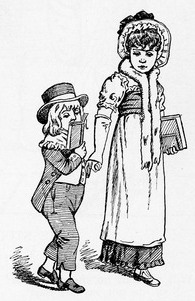 W
WIn education, cramming is the practice of working intensively to absorb large volumes of information in short amounts of time. It is often done by students in preparation for upcoming exams, especially just before they are due. Usually the student's priority is to obtain shallow recall suited to a superficial examination protocol, rather than to internalize the deep structure of the subject matter. Cramming is often discouraged by educators because the hurried coverage of material tends to result in poor long-term retention of material, a phenomenon often referred to as the spacing effect. Despite this, educators nevertheless widely persist in the use of superficial examination protocols, because these questions are easier to compose, quicker to grade, and objective on their own terms. When cramming, one attempts to focus only on studies and to forgo unnecessary actions or habits.
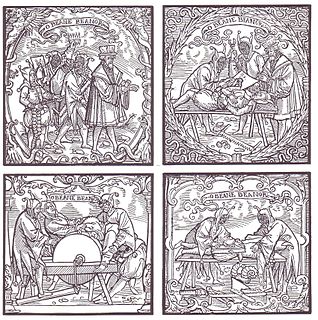 W
WThe deposition was a semi-official initiation ritual which was common at universities throughout Europe from the Middle Ages until the 18th century. The ritual was introduced at German universities in the late 15th century, probably from the influential University of Paris. Models may have included the Freisprechung ritual in artisan guilds, where apprentices were admitted to the status of journeymen.
 W
WDueling scars have been seen as a "badge of honour" since as early as 1825. Known variously as "Mensur scars", "the bragging scar", "smite", "Schmitte" or "Renommierschmiss", dueling scars were popular amongst upper-class Austrians and Germans involved in academic fencing at the start of the 20th century. Being a practice amongst university students, it was seen as a mark of their class and honour, due to the status of dueling societies at German and Austrian universities at the time, and is an early example of scarification in European society. The practice of dueling and the associated scars was also present to some extent in the German military.
 W
WFacebook is an American online social media and social networking service based in Menlo Park, California, and a flagship service of the namesake company Facebook, Inc. It was founded by Mark Zuckerberg, along with fellow Harvard College students and roommates Eduardo Saverin, Andrew McCollum, Dustin Moskovitz, and Chris Hughes.
 W
WFacekoo was a social networking service created and designed by Facekoo, which targets the Chinese language market. It offers a unique way of face recognition system to connect each member in order to create a social circle. According to Alexa ranking, its page views went beyond MySpace China for a while in November 2008 and December 2008.
 W
WFlogsta is a neighbourhood in the west part of the Swedish city of Uppsala. Most of its inhabitants are students attending Uppsala University or the Swedish University of Agricultural Sciences.
 W
WThe German friendship book was an early form of the poetry book and the modern friendship book. It emerged during the reformation period, during which it was popular to collect autographs from noted reformers. In the 1700s, the trend of the friendship book was still mainly limited to the protestant people instead of the Catholics. These books were particularly popular with university students into the early decades of the 19th century. Noteworthy are the pre-printed pages of a friendship book (Stammbuchblatt) from 1770 onwards, published as a loose-leaf collection by the bookbinder and pressman Johannes Carl Wiederhold (1743-1826) from Göttingen.
 W
WThe Hidden Curriculum (1970) is a book by the psychiatrist Benson R. Snyder, the then-Dean of Institute Relations at the Massachusetts Institute of Technology. Snyder advances a thesis that much of campus conflict and students' personal anxiety is caused by unstated academic and social norms. These hidden norms affect the ability to develop independently or think creatively, and form what Snyder calls the hidden curriculum. He illustrates his thesis with psychological studies and other research conducted at MIT and Wellesley College.
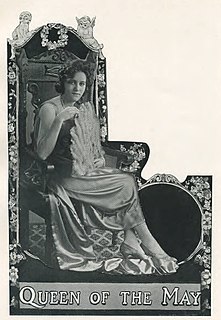 W
WHomecoming is the tradition of welcoming back former students and members and celebrating an organization's existence. It is a tradition in many high schools, colleges, and churches in the United States and to a lesser extent in Canada.
 W
WJuwenalia is an annual higher education students' holiday in Poland, usually celebrated in May, before the summer exams, sometimes also at the beginning of June.
 W
WLorum or Lórum is an old, Hungarian, compendium card game for 4 players. Although it is the ancestor of the French game, Barbu, it is still played today. It uses a German-suited pack of 32 cards and comprises 8 individual contracts, each with different rules, each of which is played four times so that a session consists of a total of 32 individual games and lasts about 1½ hours.
 W
WStudent lounges are rooms located within thousands of schools, colleges and universities, designed to give students a space for relaxation and study.
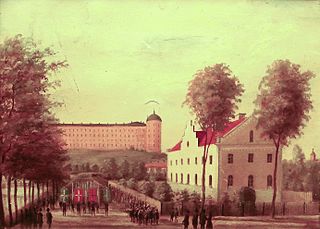 W
WNordic student meeting or Scandinavian student meeting were a series of gatherings between students at the Scandinavian universities during the 19th century. Students from Uppsala University, Lund University, the University of Copenhagen and the University of Oslo took turns in inviting respectively visiting each other's universities. Students from the University of Helsinki were also invited, but were unable to attend, as the Emperor of Russia had imposed travel bans upon the Helsinki students.
 W
WOrgSync was an online community management system for higher education institutions in the United States and Canada. OrgSync enabled colleges and universities to communicate with students and staff, track student involvement, and manage campus organizations and programs. Student organizations could manage their members, events, and websites. OrgSync was acquired by Campus Labs in 2016 and has since been replaced with Campus Labs Engage.
 W
WStudent orientation or new student orientation is a period before the start of an academic year at a university or tertiary institutions. A variety of events are held to orient and welcome new students during this period. The name of the event differs across institutions. Post-secondary institutions offer a variety of programs to help orient first year students. These programs can range from voluntary community building activities to mandatory credit-based courses designed to support students academically, socially, and emotionally. Some of these programs occur prior to the start of classes while other programs are offered throughout the school year. A number of research studies have been done to determine the factors to be considered when designing orientation/transition programs.
 W
WA packed lunch is a lunch prepared at home and carried to be eaten elsewhere, such as school, a workplace, or on an outing.
 W
WPiled Higher and Deeper, is a newspaper and webcomic strip written and drawn by Jorge Cham that follows the lives of several grad students. First published in 1997 when Cham was a grad student himself at Stanford University, the strip deals with issues of life in graduate school, including the difficulties of scientific research, the perils of procrastination, and the complex student–supervisor relationship. As of 2017, the strip's website received 6 million visitors each year.
 W
WCampus protest or student protest is a form of student activism that takes the form of protest at university campuses. Such protests encompass a wide range of activities that indicate student dissatisfaction with a given political or academics issue and mobilization to communicate this dissatisfaction to the authorities and society in general and hopefully remedy the problem. Protest forms include but are not limited to: sit-ins, occupations of university offices or buildings, strikes etc. More extreme forms include suicide such as the case of Jan Palach's, and Jan Zajíc's protests against the end of the Prague Spring and Kostas Georgakis' protest against the Greek military junta of 1967–1974.
 W
WQuodlibet is a traditional card game associated with central European student fraternities that is played with William Tell pattern cards and in which the dealer is known as the 'beer king'. It is a compendium, trick-taking game for 4 players using a 32-card pack of double German playing cards.
 W
WReality Checkpoint is a large cast-iron lamppost in the middle of Parker's Piece, Cambridge, England, at the intersection of the park's diagonal paths.
 W
WThe Renren Network, formerly known as the Xiaonei Network is a Chinese social networking service similar to Facebook. It is popular among college students. In February 2011, Renren made a pre-IPO announcement that it had 160 million registered users. Later, in April 2011, it had to update its statement accurately to "a total of 31 million active monthly users." Renren Inc. has its headquarters in Chaoyang District, Beijing. Renren also has offices in Shanghai and Guangzhou.
 W
WStudent riots, college riots, or campus riots are riots precipitated by students, generally from a college, university, or other school. Student riots are often an aspect of student protests.
 W
WA roommate is a person with whom one shares a living facility such as a room or dormitory except when being family or romantically involved. Similar terms include dormmate, suitemate, housemate, or flatmate. Flatmate is the term most commonly used in New Zealand, when referring to the rental of an unshared room within any type of dwelling. Another similar term is sharemate. A sharehome is a model of household in which a group of usually unrelated people reside together. The term generally applies to people living together in rental properties rather than in properties in which any resident is an owner occupier. In the UK, the term "roommate" means a person living in the same bedroom, whereas in the United States and Canada, "roommate" and "housemate" are used interchangeably regardless whether a bedroom is shared, although it is common in US universities that having a roommate implies sharing a room together. This article uses the term "roommate" in the US sense of a person one shares a residence with who is not a relative or significant other. The informal term for roommate is roomie, which is commonly used by university students.
 W
WRumpel is a card game, similar to Quodlibet that is native to the Danube region from Regensburg to Linz, but is played especially in the region of Hauzenberg in the German county of Passau. Mala describes a version with 8 or 12 contracts from a menu of 29 called Großer Rumpel.
 W
WThe russefeiring is a traditional celebration for Norwegian high school pupils in their final spring semester. Pupils that take part in the celebrations are known as russ. The russefeiring traditionally starts around 20 April and ends on 17 May, the Norwegian Constitution day. Participants wear coloured overalls. Some form groups that name a bus, car or van. Some celebrate almost continually during this period. Drunkenness and public disturbances are regularly linked to the celebration.
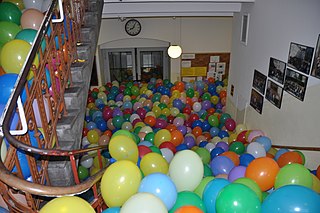 W
WA senior prank, also known as muck-up day in Australia and the United Kingdom, is a type of organized prank pulled by the senior class of a school, college, or university to cause chaos throughout the institution. The pranks are usually carried out at the end of the senior school year as a going away mark on the school, and in some cases have become something of a tradition.
 W
WUniversity College Ghent is the largest university college in Flanders, with three faculties, one School of Arts and 13,000 students. Its establishment in 1995 is the outcome of two successful mergers that involved sixteen Belgian institutions of higher education. Many had been influential leaders in higher education for several decades. The current faculties are spread over the city center of Ghent and Aalst.
 W
WSpring break is a vacation period in early spring at universities and schools, which started during the 1930s in the US and is now observed in many other countries as well. Spring break is frequently associated with extensive gatherings and riotous partying in warm climate locations such as Daytona Beach, Florida, Panama City Beach, Florida, Gulf Shores, Alabama and Cancún, Mexico, attended regardless of participants' educational standings.
 W
WSaint V is the commonly used name for a holiday for freethinking university students in Brussels, Belgium, celebrating the founding of the Free University of Brussels. The day's long form differs in the two official languages, but both are a reference to Pierre-Théodore Verhaegen, the founder of the university, who notably is not a saint and was never canonized; the name was chosen to mock the Saint-Nicolas festivities of the rival Catholic University instead. The festivities take place on November 20, commemorating the anniversary of the university's official opening. It is celebrated by students of both the Université Libre de Bruxelles and the Vrije Universiteit Brussel, which officially separated in 1970.
 W
WStudent boilersuit are boilersuits widely used for specific events at universities and polytechnics in Sweden, Finland, and Canada. Typically, the suits are procured by the student associations of faculties or programmes. At the major Swedish universities the use of boilersuits is limited to engineering students, but their use has spread to students in other fields at some of the smaller university colleges. In Finland, boilersuits have also been foremost identified with engineering students, but see extensive use in all of the student organizations of Finnish institutions of higher learning, such as University of Helsinki and Aalto University.
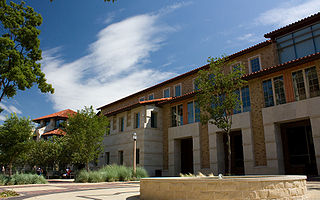 W
WA student center is a type of building found on university and some high school campuses. In the United States, such a building may also be called a student union, student commons, or union. The term "student union" refers most often in the United States to a building, while in other nations a "students' union" is the student government. Nevertheless, the Association of College Unions International has several hundred campus organizational members in the US; there is no sharp dichotomy in interpretation of union in this context. The US usage in reference to a location is simply a shortened form of student union building.
 W
WA practical joke, or prank, is a mischievous trick played on someone, generally causing the victim to experience embarrassment, perplexity, confusion, or discomfort. A person who performs a practical joke is called a "practical joker" or "prankster". Other terms for practical jokes include gag, rib, jape, or shenanigan.
 W
WStudents' Day is marked on Babasaheb Ambedkar's school entry day, 7 November. On 27 November 2017, the government of Maharashtra declared 7 November "Students' Day".
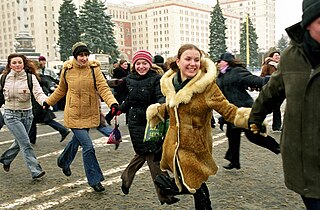 W
WTatiana Day, also known as Tatyana's Day or Students Day, is named after Saint Tatiana, a Christian martyr in 3rd-century Rome during the reign of Emperor Alexander Severus. It is also the name day for the name Tatiana. The Russian Orthodox Church celebrates St. Tatiana's feast on 12 January Julian, which corresponds to 25 January Gregorian in the 20th and 21st centuries. In Russia, the day is known as Students Day, commemorating the foundation of the Moscow State University.
 W
WA toga party is a Greco-Roman-themed costume party where attendees wear a toga with sandals. The costumes, party games, and other entertainment often adhere to the Roman or Greek theme. Toga parties are associated with keg parties and excessive drinking, and attendees typically tend to be college or university students.
 W
WTown and gown are two distinct communities of a university town; 'town' being the non-academic population and 'gown' metonymically being the university community, especially in ancient seats of learning such as Oxford, Cambridge, Durham, and St Andrews, although the term is also used to describe modern university towns as well as towns with a significant public school. The metaphor is historical in its connotation but continues to be used in the literature on urban higher education and in common parlance.
 W
WTruancy is any intentional, unjustified, unauthorized, or illegal absence from compulsory education. It is a deliberate absence by a student's own free will and usually does not refer to legitimate excused absences, such as ones related to medical conditions. Truancy is usually explicitly defined in the school's handbook of policies and procedures. Some children whose parents claim to homeschool have also been found truant in the United States. Other terms for truancy include playing hooky, skiving off, wagging and bunking. Attending school but not going to class is called skipping class, cutting class, flapping or, more formally, internal truancy. In 2017, estimates in the United States suggested that approximately 11% of adolescents had skipped school during the past month.
 W
WA tuna is a group of university students in traditional university dress who play traditional instruments and sing serenades. The tradition originated in Spain and Portugal in the 13th century as a means of students to earn money or food. Nowadays students don't belong to a "tuna" for money nor food, but seeking to keep a tradition alive, for fun, to travel a lot and to meet new people from other universities. A senior member of a tuna is a "tunante", but is usually known simply as a "tuno". The word “tuno” also refers to anyone who is a member of a tuna, although the first conceptualisation is more used among tunas. Newbies are known as "caloiros", "novatos" or "pardillos".
 W
WStudent voice is "any expression of any learner regarding anything related to education" and describes "the distinct perspectives and actions of young people throughout schools focused on education. Tech educator Dennis Harper writes, "Student voice is giving students the ability to influence learning to include policies, programs, contexts and principles."